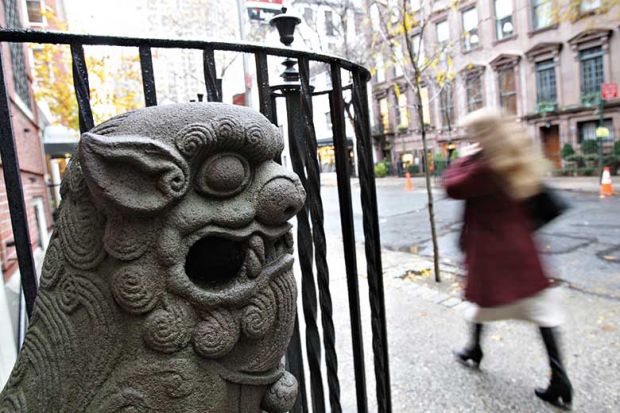Higher education administrators expect the Trump administration to use federal funding restrictions to pressure more US universities to shut down their Chinese government-sponsored Confucius Institutes.
US universities already cannot use resources from the Department of Defense for activities involving Confucius Institutes, as part of the Pentagon budget approved last year by Congress. That’s a hurdle for colleges working with the Pentagon’s own programmes to teach Chinese and other languages regarded as having strategic importance.
The annual conference of the Association of International Education Administrators in San Francisco heard that these controls were likely to spread to other areas of research funding, and that the ongoing retreat by universities from Confucius Institutes was likely to continue.
Anderson Sutton, assistant vice-chancellor for international and exchange programmes at the University of Hawaiʻi at Mānoa, said he expected to feel similar efforts to tie Confucius Institute restrictions to funding for foreign language studies financed by the US Education Department.
“We’re on thin ice, I think, with the Department of Education,” he said.
That concern extends to the possibility of restrictions tied to eligibility for federal research dollars. At the University of Pittsburgh, said Belkys Torres, the executive director of global engagement, research administrators already were warning that the Chinese funding “doesn’t compare to what we might lose if we keep this Confucius Institute”.
Such worries about pressure related to Confucius Institutes are also arising at the University of California, Los Angeles, said Kathryn Paul, executive director of the UCLA Centre for World Languages. “It’s a major issue for us,” Ms Paul told the conference.
About 100 US college campuses have a Confucius Institute affiliation, through which their students are offered courses in Chinese language and culture, sometimes for credit, and usually with instructors chosen and funded by an agency of China’s Ministry of Education.
Confucius Institute courses have been widely faulted for reflecting official Chinese preferences in terms of avoiding sensitive topics, such as human rights and political freedom in China. The American Association of University Professors has long asked US universities to end Confucius Institute programmes unless they can guarantee full control over teaching staff and curricula.
Yet none of the speakers at the AIEA’s main session on Confucius Institutes directly addressed concerns about their courses’ content and the political limits on that.
One of them, Hong Yang, a professor of science and technology and director of the Confucius Institute programme at Bryant University, complained that some US politicians “need to be better educated” about the institutes. “Some Confucius Institutes are perceived, at least by some, as representing the Chinese government, which [they are] not,” Professor Yang said.
Another, Yu Jiang, director of the Confucius Institute at Xavier University of Louisiana, said the courses aim to provide students with skills to compete globally. “We’re not trying to brainwash our students,” he said.
Yet Professor Yang conceded the likelihood of more US universities quitting. “I do not see a closure of a Confucius Institute as a bad thing if it’s not suitable for that institution, and closing it is good for the school and down the road for the entire Confucius Institute programme,” he said.
Register to continue
Why register?
- Registration is free and only takes a moment
- Once registered, you can read 3 articles a month
- Sign up for our newsletter
Subscribe
Or subscribe for unlimited access to:
- Unlimited access to news, views, insights & reviews
- Digital editions
- Digital access to THE’s university and college rankings analysis
Already registered or a current subscriber?







